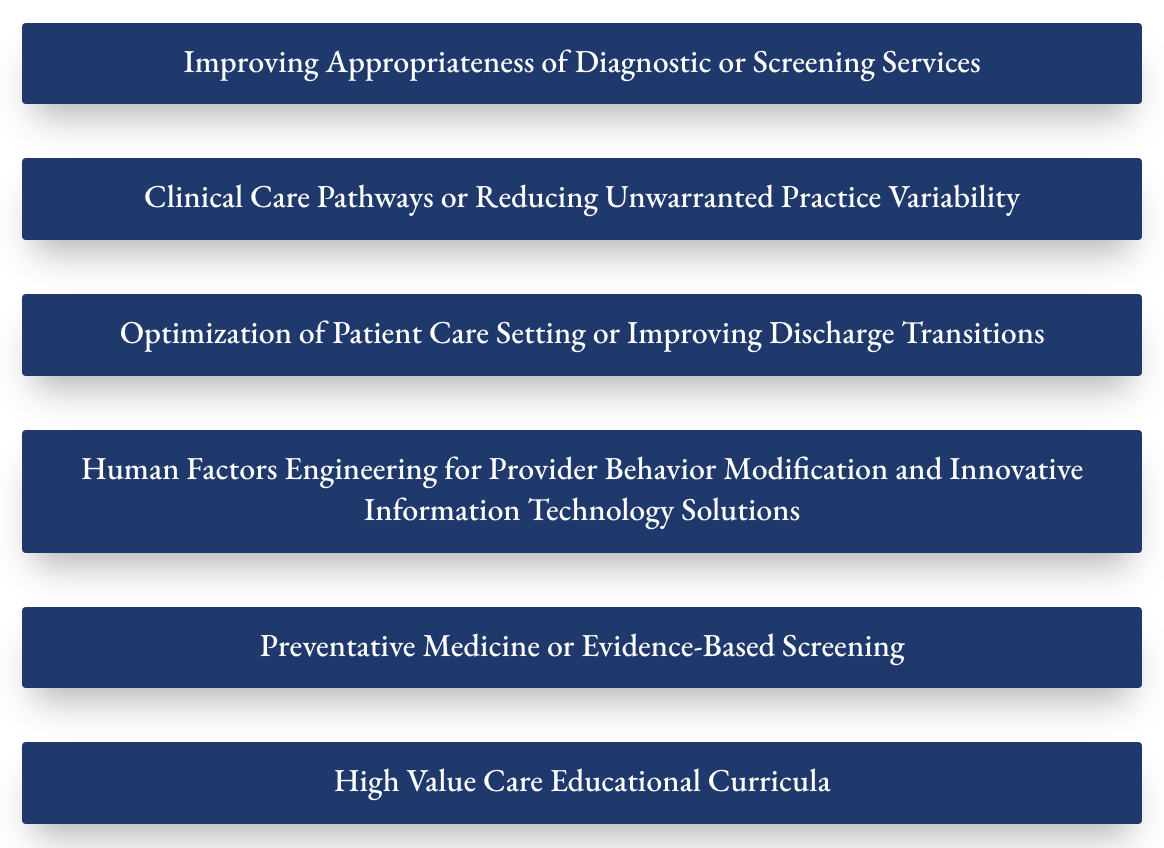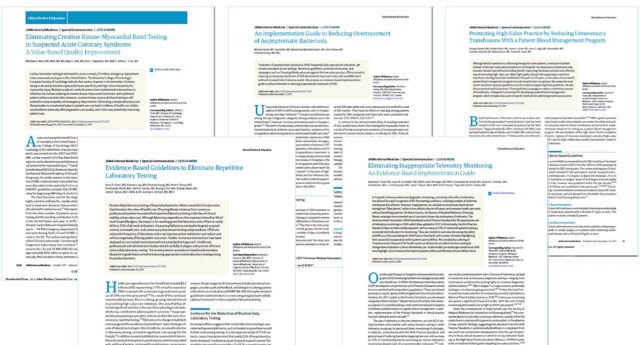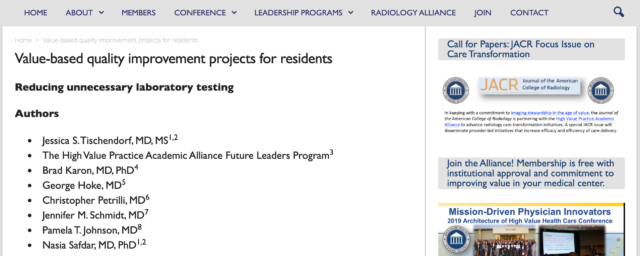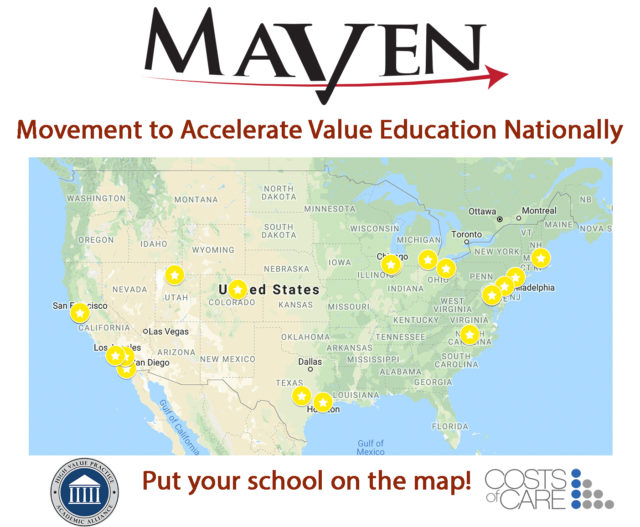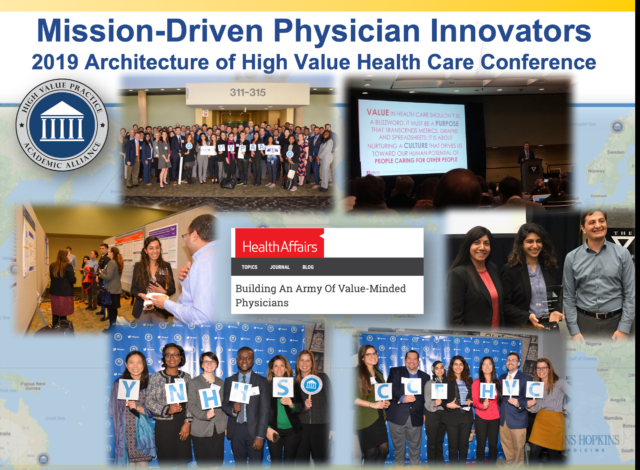 In response to these challenges, providers across the country are reflecting on their practice to identify opportunities and implement initiatives that improve patient care quality and safety while reducing costs. To efficiently and effectively advance this work on a national scale, the High Value Practice Academic Alliance was established in 2017, and faculty leaders from 100 large and small teaching hospitals partner institutions representing >30 different medical specialties & subspecialties joined the organization. After 5 years of successful collaboration, the organization had compiled a compendium of resources and opened membership to any medical center in the country as the High Value Practice Alliance, to engage practices, hospitals and systems in all settings in our information exchange network. Through cross-institutional collaboration, successful value improvement work safely piloted in one center can be advanced nationally to lead large-scale improvements in health care value.
In response to these challenges, providers across the country are reflecting on their practice to identify opportunities and implement initiatives that improve patient care quality and safety while reducing costs. To efficiently and effectively advance this work on a national scale, the High Value Practice Academic Alliance was established in 2017, and faculty leaders from 100 large and small teaching hospitals partner institutions representing >30 different medical specialties & subspecialties joined the organization. After 5 years of successful collaboration, the organization had compiled a compendium of resources and opened membership to any medical center in the country as the High Value Practice Alliance, to engage practices, hospitals and systems in all settings in our information exchange network. Through cross-institutional collaboration, successful value improvement work safely piloted in one center can be advanced nationally to lead large-scale improvements in health care value.
Programs
Monthly webinars showcase successful value-based quality improvement initiatives, and the alliance directs a national high value care conference each fall and sponsored by the Johns Hopkins University School of Medicine. Member centers also work together to design new value-based quality improvement initiatives and disseminate results in the medical journals for broad impact. Teams of faculty and house staff have created a compendium of peer-reviewed implementation guides published in JAMA Internal Medicine, designed to assist others embarking on new value-based improvement within their medical center.
 Engaging medical students, resident physicians, and fellows is critical for longstanding improvements in practice, and this a founding principle of the organization.
Engaging medical students, resident physicians, and fellows is critical for longstanding improvements in practice, and this a founding principle of the organization.
The HVPA Future Leaders Program is a free year-long professional development curriculum for residents and fellows, designed to recognize high potential house staff and advance their understanding of high value care and how to lead value-related quality improvement. The curriculum includes carefully selected didactics and direct mentoring by 7 faculty champions from academic medical centers committed to high value care.
By joining forces, medical institutions can efficiently and effectively advance performance improvement to refine health care on a national scale and demonstrate to patients that their medical providers are accountable for the quality of health care they deliver, as well as the quality of the U.S. health care delivery system.
The alliance provides a forum for medical institutions to collaborate on best practice performance improvement initiatives and peer reviewed publications related to health care value. The alliance does not provide medical advice.
